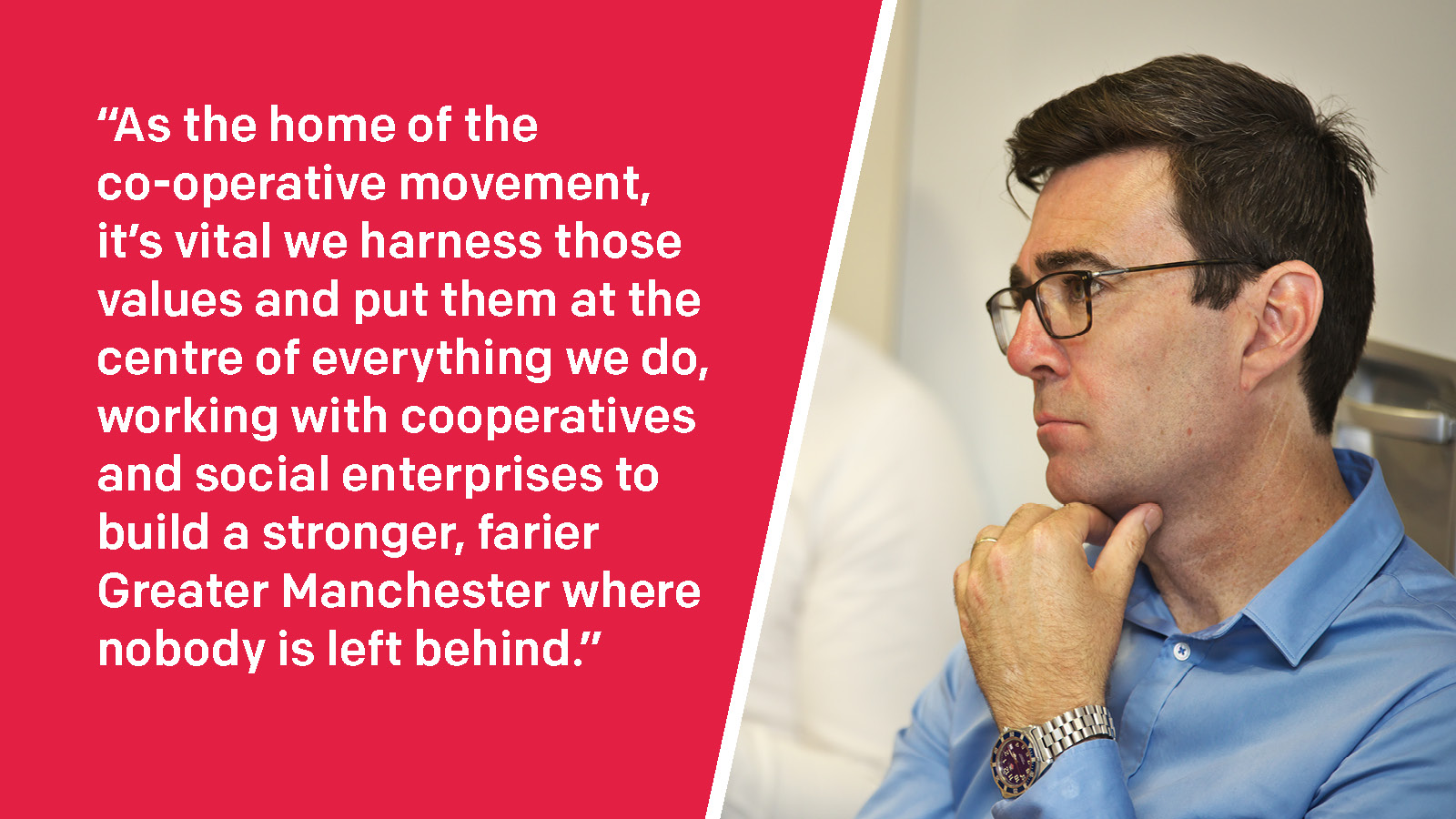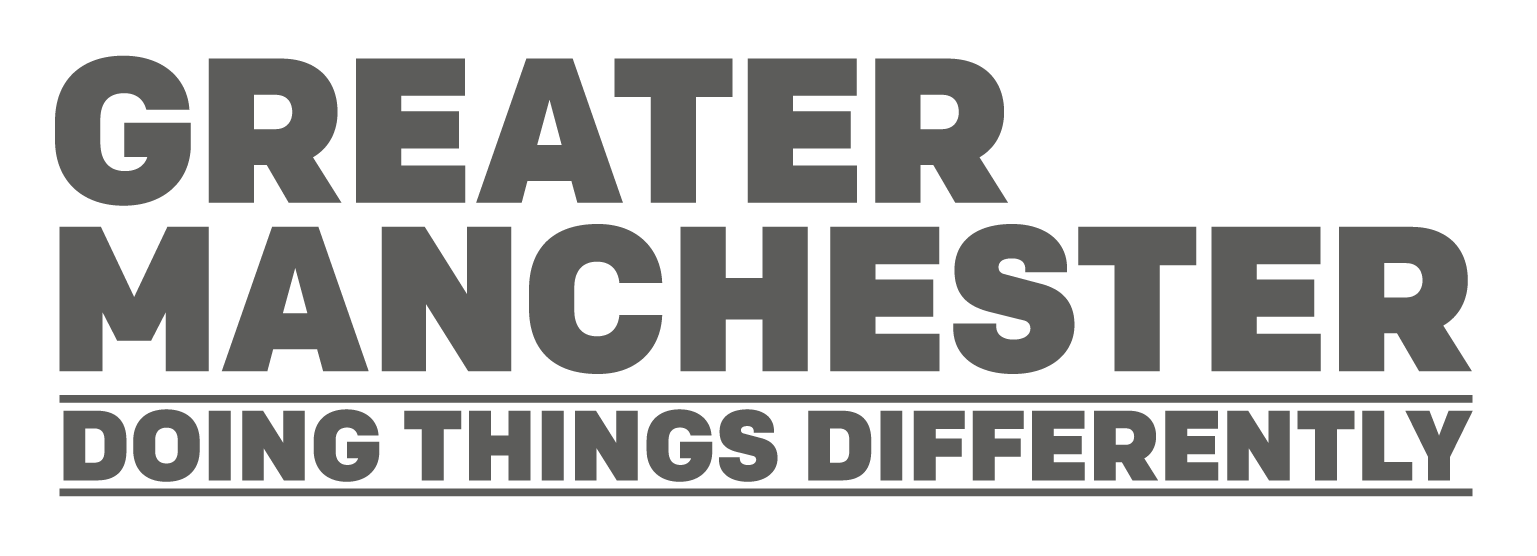Greater Manchester Co-operative Commission - Call for Evidence
Feedback updated 27 Feb 2020
We asked
The Greater Manchester Co-operative Commission was established by the Greater Manchester Combined Authority (GMCA) to be a driver for developing co-operative activity across the city-region and to explore how co-operative methods can help to solve existing issues facing the city-region.
A call for evidence was launched in February 2019 and sought information around
four 'opportunities' to develop the co-operative model across Greater Manchester:
•Housing
•Transport
•Digital
•Business development
The call for evidence also sought information about other opportunities that the co-operative model could apply to, as well as experience from other sectors that can be applied to any of the four opportunity areas.
You said
The GM Co-operative Commission’s Call for Evidence officially closed on 4th September 2019; 42 submissions were made in total. The evidence provided strong support for the development of the co-operative sector, with a clear suggestion that Greater Manchester should be the host of this development.
Key conclusions from the evidence which was submitted included:
- There are clear opportunities for co-operatives to be more co-operative with each other
- There is a need to understand the market and where co-operatives can thrive
- Co-operatives need to be offered as an option in business support, advice and for commissioners of services
- There is a need for ‘specialist’ business advice
- Current funding models can favour capitalism over co-operation
- Co-operation doesn’t have to be an ‘all or nothing’ approach
- There is a need to change the procurement process to allow a more ‘even playing field’ for co-operatives (and other organisations)
- Co-operatives have to be competitive
- The social value is a ‘Unique Selling Point’, and this needs to be made more obvious
- There is a lack of evidence about the benefit (social and fiscal) of co-operatives
We did
The Co-operative Commissioners met on 7 occasions to consider the evidence which was submitted and to hear from a range of expert witnesses.
The full Report of the Greater Manchester Co-operative Commission – ‘A Co-operative Greater Manchester – People and Communities working together to improve the environment, create good jobs and sustainable growth’ was published in January 2020.
The Report summarises the findings from the evidence which was submitted to the Commission, and provides practical policy recommendations for future consideration. It sets out a vision for Greater Manchester to be the most co-operative place in the country.
There are 42 recommendations contained in the Report. These recommendations are framed around three broad areas for action:
- Creating the conditions for co-operatives to thrive
- Co-operation in Communities
- Supporting the Co-operative Business Model
There are also a number of sector-specific recommendations around co-operative and community housing, transport and the digital sector.
The full Report can be downloaded here
Overview
The Greater Manchester Co-operative Commission has been established by the Greater Manchester Combined Authority (GMCA) to be a driver for developing co-operative activity across the city-region and to explore how co-operative methods can help to solve existing issues facing the city-region.
The Commissioners sit as an independent panel, and will make policy recommendations to ensure that the GMCA is drawing on the benefits that co-operatives can bring to our city-region.
It is anticipated that the Commission will encourage greater collaboration within the co-operative sector and contribute to the achievement of the ambitions of the Greater Manchester Strategy - to make Greater Manchester one of the best places in the world to grow up, get on and grow old - and to be one of the most co-operative places in the UK.

The Commission will focus on four 'opportunities' to develop the co-operative model across Greater Manchester:
- Housing
- Transport
- Digital
- Business development
We are also interested in receiving evidence about other opportunities that the co-operative model could apply to, as well as experience from other sectors that can be applied to any of the four opportunity areas.
Call for Evidence
We are keen to hear from those involved in running, setting up or trying to set up co-operatives. We’d particularly like to discover examples of success, innovation and growth, and enablers to success, as well as lessons learnt, and the barriers and pitfalls to avoid.
Each meeting of the Commissioners will focus on a different opportunity. We can receive your evidence up to the final closing date (1 September 2019) and all the evidence we receive will inform the final report and recommendations. However, if you would like your evidence to help inform the Commissioners’ meetings please submit it by the following dates:
- Housing – Tuesday 16th April
- Transport – Wednesday 15th May
- Digital – Wednesday 19th June
- Business development – Sunday 14th July
Audiences
- Businesses
- Community, voluntary sector and social enterprises
- Academics
- Public sector partners
Interests
- Co-operatives

Share
Share on Twitter Share on Facebook